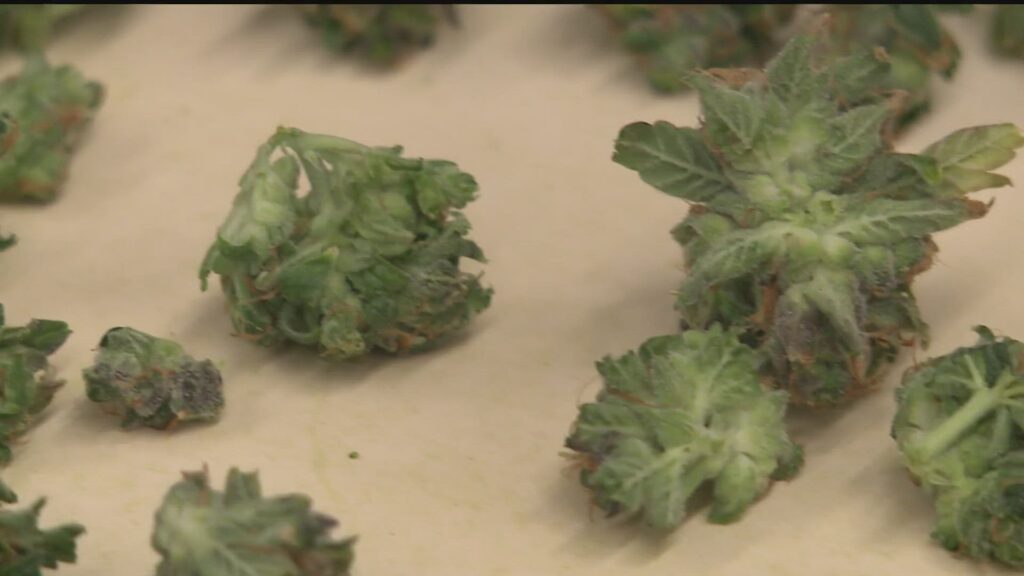ST PAUL, Minn. — Minnesota is closer than ever to legalizing recreational marijuana.
House and Senate lawmakers will meet soon to work out the differences before the pot bill goes back up for a vote.
If it passes both chambers again, Governor Tim Walz is expected to sign it, making Minnesota the 23rd state to legalize pot.
In Oregon, voters approved recreational marijuana in 2014, expecting to phase it in slowly.
“What ended up happening in actuality was everybody was impatient, they were excited,” said University of Oregon economics professor Benjamin Hansen.
Instead, Hansen says lawmakers passed an emergency bill, converting medical dispensaries to recreational ones by that summer that also permitted people over 21 to grow their own.
“I think we can see in some ways it’s had what you might call pretty minor impacts,” said Hansen.
Marijuana use has long been high among adults in Oregon. But three years after it was legal, the government agency that oversees the state’s health care programs reported the number of teens using it barely changed at all.
What did go up, though, was impaired driving incidents and cannabis-related poison center calls.
“They might eat some chocolate and 15 minutes later they don’t feel anything, so they eat a little bit more chocolate and then finally it hits them like 15 minutes after that and then they’re just on the floor,” said Hansen. “I would expect to see some circumstances like that emerge especially as first-time users try marijuana for the first time.”
In the meantime, the market was also full of too much weed that prices plummeted and regulators imposed temporary moratoriums on grow licenses, sparking fears it would fuel the black market except there’s no way to measure that.
“But at the same time, Oregon has consistently seen the revenues coming from marijuana growing year after year after year,” said Hansen.
Last year, the Oregon Liquor and Cannabis Commission says the industry raked in $178 million in revenue. It has a retail sales tax of 17%, which is 9% higher than what Minnesota lawmakers are proposing.
“As a public economist, I would say that seems extremely low,” said Hansen. “I think the state is leaving a ton of money on the table and they certainly could go for more.”
Hansen says Minnesota should also consider potency measurements, packaging and marketing rules and clear driving while high laws – details the legislature hasn’t spelled out publicly yet.
H/T: www.kare11.com



